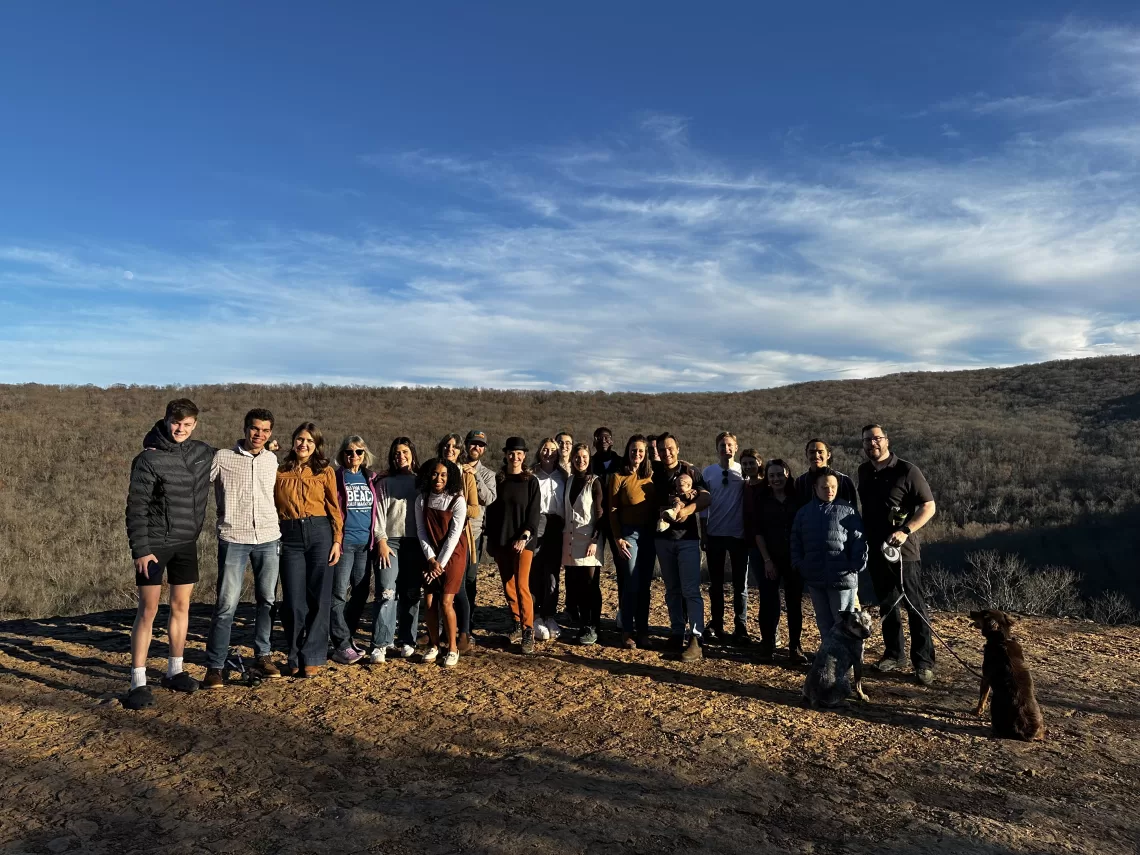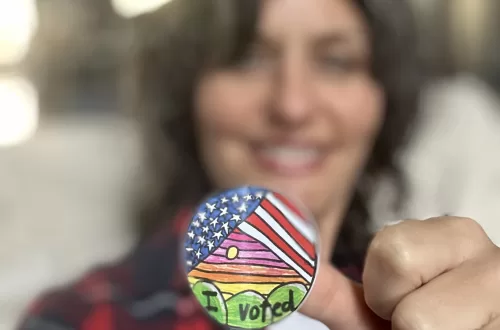When our four kids were little, we hustled them across the state so they could participate in holidays with both sets of extended family members. It was rarely a pleasant experience. Long road trips taken after a full day’s work accentuated by kids crying in the back seat didn’t seem like the makings of great memories. We eventually negotiated and split up the holiday: Thanksgiving in one part of the state with my family, and Christmas in the other with his. The concession made the holiday weeks more manageable, but I always felt like I needed a vacation day after the holiday travel.
As the kids outgrew diapers and rigid sleep routines, the travel became easier and the experiences more meaningful. The soundtrack of overtired babies crying in their car seats transformed into games, songs, and eventually podcasts that we all enjoyed.
Holidays have changed. The kids travel to us now. Occasionally grandparents do too. I still feel like I need a vacation day when everyone leaves. But my exhaustion is triggered by the fullness of the time together, not the deficiency sparked by the pull of a million things at once.
Had we not cemented these routines when our kids were little, these special times together as adults would never have happened. While we were navigating spousal tensions, overlooking generational differences, and prioritizing just being there–weary and haggard as we were–something was built.
The challenges of navigating life with young kids aren’t the only reasons people opt out of family get-togethers. Social media is rife with videos of awkward Thanksgiving dinners featuring the uncle who refuses to leave his politics at the door or the aunt who makes passive-aggressive statements about your approach to discipline.
But on this side of 40, those concerns seem pretty trivial compared to the value that family traditions bring. One in three members of Generation Z planned to spend the last holiday season away from family and 1 in 5 Americans planned to avoid family drama by abstaining from tradition altogether. This is tragic.
We don’t have to buy into this narrative. Family get-togethers will always have their unpleasant moments, but somehow in the pressure cooker of crying babies and passive-aggressive statements, we get a clarified sense of where we came from and who we want to be. The ritualistic behavior associated with traditions can bring us together, bring a sense of identity, and bring a greater sense of purpose to the young people exposed to our family stories.
I have found that focusing a little more on the other people sitting around the table at family get-togethers brings a greater appreciation for these traditions and the people they represent. Whether you’re hosting a family Thanksgiving celebration or have been invited as a friend or family member, here are a few tips to get the most out of being with others this week.
- Friends: Our holiday meals have always been composed of an eclectic mix of friends and family. I don’t want to diminish the incredible importance of Friendsgiving. If you have the honor of being invited to a friend’s house for the holidays, consider yourself family and follow the age-appropriate rules below.
- Youngish folks without children: Teenagers, college students, and young professionals without children: don’t avoid your family. Show up. Bring something. Ask how you can help. That act of kindness and consideration alone might just stifle any passive-aggressive quips by the others. If it doesn’t, just overlook it. Your grandparents’ filters aren’t what they used to be. They might not know what else to talk about other than politics. So direct the conversation elsewhere. Ask them about what Thanksgiving looked like when they were younger. When they ask why you haven’t gotten married yet, tell them you haven’t found the right person and ask how they met their spouse. These family stories have intergenerational benefits.
- Parents of young children and teenagers: Get your kids there. Don’t worry about making this memory perfect for your three-year-old. Infantile amnesia will likely wipe it out anyway. Just endure and know that it doesn’t have to be perfect to be meaningful. Prep your tweens and teens to be contributors and take some responsibility for the conversation. Put their cell phones away and come up with a handful of questions they can ask if Aunt Jean asks someone else about their recent weight gain. Make this holiday theirs by giving them some responsibility in making it meaningful.
- Old folks: You know who you are. Your family will benefit from authentic interactions with you, not superficial conversations about polarizing topics. Family holidays are a great place to connect your nieces, nephews, and grandkids to aspects of their history they wouldn’t otherwise know. You’ve paid your dues. But you know what? You’re not done yet. Offer to hold a baby, entertain a toddler, or help fix a little kid’s plate. Don’t comment when they tell you they’re gluten-free. And if you aren’t physically able to do these things, then feel free to take it all in and appreciate the family and friends that surround you. What a gift.
If you aren’t able to connect with others for Thanksgiving, remember Christmas is just around the corner. Start making plans now. If you’re looking for a good Thanksgiving turkey recipe, here’s our family’s favorite. Happy Thanksgiving.






https://shorturl.fm/eAlmd
https://shorturl.fm/JtG9d
https://shorturl.fm/f4TEQ
https://shorturl.fm/PFOiP
https://shorturl.fm/MVjF1
https://shorturl.fm/IPXDm
https://shorturl.fm/0oNbA
https://shorturl.fm/DA3HU
https://shorturl.fm/YZRz9
https://shorturl.fm/uyMvT
https://shorturl.fm/TbTre
https://shorturl.fm/oYjg5
https://shorturl.fm/XIZGD
https://shorturl.fm/oYjg5
https://shorturl.fm/YvSxU
https://shorturl.fm/6539m
https://shorturl.fm/XIZGD
https://shorturl.fm/A5ni8
https://shorturl.fm/TbTre
https://shorturl.fm/FIJkD
https://shorturl.fm/5JO3e
https://shorturl.fm/j3kEj
https://shorturl.fm/68Y8V
https://shorturl.fm/bODKa
Super https://shorturl.fm/6539m
Top https://shorturl.fm/YvSxU
Awesome https://shorturl.fm/oYjg5
I have to show some appreciation to this writer for rescuing me from such a incident. After searching throughout the internet and obtaining basics that were not powerful, I was thinking my life was done. Existing devoid of the solutions to the problems you’ve solved all through the report is a crucial case, and ones that could have negatively affected my entire career if I hadn’t discovered your blog. Your own capability and kindness in handling all the details was tremendous. I don’t know what I would’ve done if I hadn’t encountered such a solution like this. It’s possible to at this moment look ahead to my future. Thanks so much for the high quality and effective help. I won’t think twice to refer your web sites to anyone who needs support on this area.
There’s noticeably a bundle to know about this. I assume you made sure good factors in features also.
I found myself deeply moved by this piece. It’s rare to come across writing that doesn’t just inform but transforms. You’ve taken complex ideas and made them feel not just understandable but important. Reading this, I felt both challenged and comforted — a true testament to the power of your words.
Awesome https://is.gd/N1ikS2
Good https://is.gd/N1ikS2
Good https://is.gd/N1ikS2